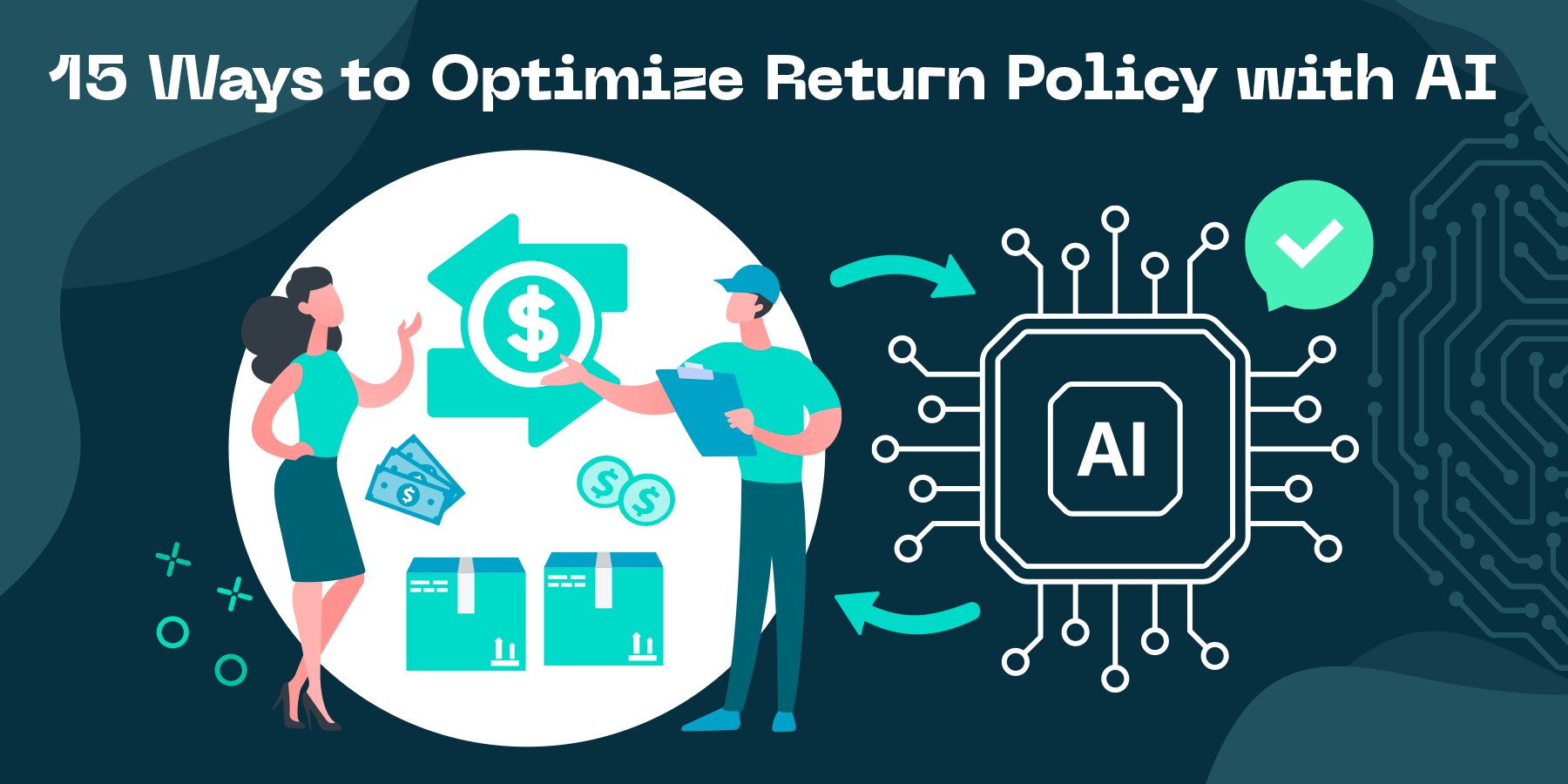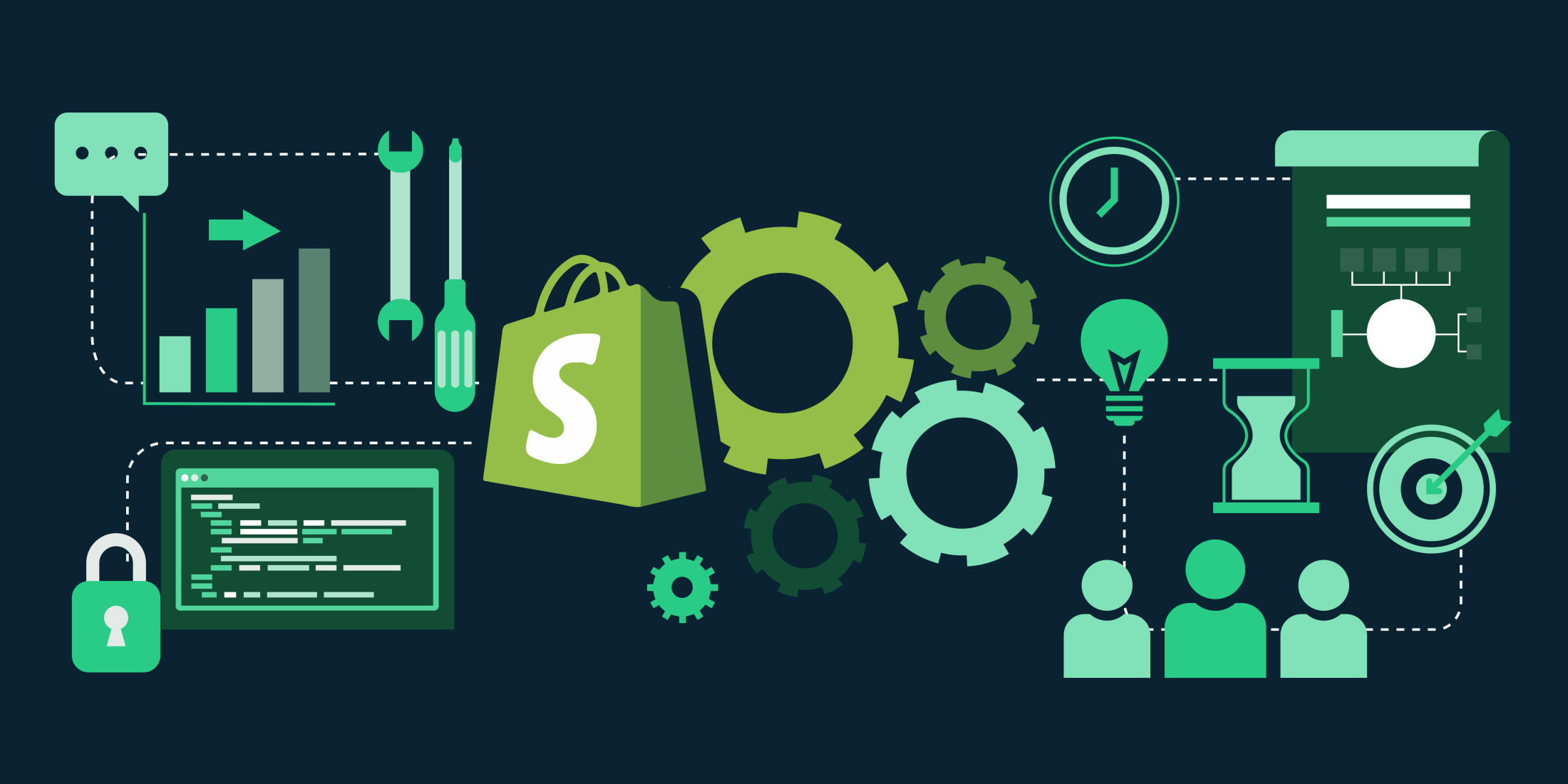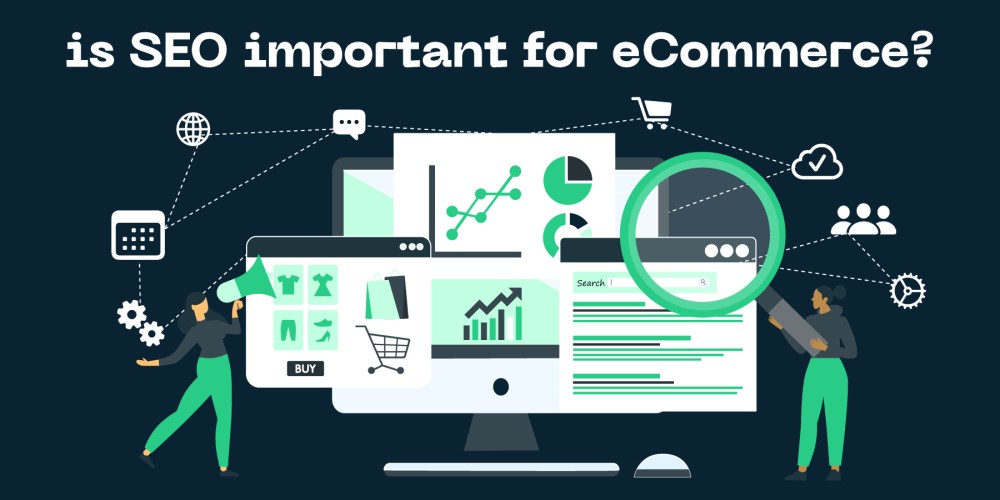15 Ways Artificial Intelligence Can Optimize Your Return Policy

Introduction to AI and Return Policies
Understanding AI
Artificial Intelligence, or simply AI, has grown from science fiction fantasy into a game-changing reality, especially for ecommerce businesses. This technology revolves around the idea of making machines intelligent, meaning they can learn and make decisions independently. The potential of AI in revolutionizing business operations is immense, and one aspect is its capabilities in optimizing return policies.
Return policies are often a pain point for both consumers and businesses. A smooth and efficient return process can vastly improve customer satisfaction, which in turn, boosts customer retention and overall business success. However, managing and maintaining an effective return policy can be quite complex and resource-intensive. This is where AI steps in. By leveraging machine learning algorithms and predictive analytics, AI can streamline and optimize return policies for ecommerce businesses, reducing costs, improving efficiency, and enhancing the customer experience.
It is no longer a question of "Should I integrate AI into my ecommerce store?", but rather "How can I best utilize AI to optimize my operations and maximize growth?". With a better comprehension of AI and its potential, ecommerce store owners and marketers can strategically use this technology to their advantage, particularly in the realm of return policies.
The Role of AI in Ecommerce
The advent of Artificial Intelligence (AI) has revolutionized various sectors, including ecommerce. As an ecommerce store owner or marketer, you may be aware of the numerous benefits, from improved customer service to enhanced product recommendations. However, AI also plays a significant role in optimizing return policies, a crucial aspect often overlooked in the ecommerce sphere. A well-managed return policy not only increases customer satisfaction but also drives conversion rates and profits.
Why is AI Important in Return Policies?
AI can handle and analyze large volumes of data more accurately and efficiently than humans. It can predict customer behavior, identify patterns and trends, and provide insights into why customers return products. This information can be instrumental in optimizing your return policy. For instance, you can implement measures to reduce the rate of product returns based on the common reasons identified by the AI. Furthermore, AI can automate the return process, making it quicker and more efficient, thereby enhancing customer experience and loyalty.
AI and Personalized Return Policies
AI can also be used to personalize return policies for individual customers. A one-size-fits-all return policy does not always work, as customers have different needs and preferences. AI can analyze each customer’s purchase history, return habits, and other relevant data to create a personalized return policy. This tailored approach not only improves customer satisfaction but also reduces the likelihood of product returns, ultimately increasing your conversion rate.
The Importance of Optimized Return Policies
Why Return Policies Matter
Why do return policies matter? A clear, well-defined return policy offers assurance to customers, creating trust and enhancing their shopping experience. It not only reflects your company's commitment to customer satisfaction but it also plays a crucial role in your customers' purchasing decision. A customer who believes that they can effortlessly return a product if it's not up to their expectations is more likely to buy, thereby positively impacting your conversion rates.
The importance of optimized return policies cannot be overstated. An optimized return policy can act as a powerful marketing tool that boosts your brand's reputation, increases customer loyalty, and ultimately enhances your revenue. It can also provide a competitive edge in today's cutthroat ecommerce landscape. However, creating an effective return policy can be complex and time-consuming, which is where artificial intelligence comes in.
By leveraging the power of AI, ecommerce store owners and marketers can streamline their return procedures, making them more efficient and customer-friendly. AI can analyze customer behavior, uncover patterns, and provide insights to reduce the number of returns. It can also automate the returns process, saving precious time and resources, and minimizing chances of human error. Overall, the integration of AI into return policies presents an exciting opportunity for businesses to elevate customer experience and drive growth.
How AI Can Improve Return Policies
One of the significant challenges faced by ecommerce businesses is handling product returns. An optimized return policy is crucial in ensuring customer satisfaction and loyalty. It not only increases the chances of repeat purchases but also reduces the burden of managing returned products. The role of Artificial Intelligence (AI) in transforming return policies cannot be overstated. AI can bring about needed changes in your return policy, making it more streamlined and efficient.
AI in Return Policies
AI can offer predictive analytics that helps identify patterns in returns, offering insights into why customers are returning products. This information can be invaluable in addressing issues at their root, thereby reducing the frequency of returns. AI can also automate the return process, reducing human error and increasing efficiency. By incorporating AI into your return policy, businesses can provide a seamless experience for customers, encouraging their continued patronage.
Improving Conversion Rates with AI
Ecommerce businesses strive to enhance their conversion rates, and one of the critical factors influencing this is the return policy. A transparent, easy-to-understand, and customer-friendly return policy can assure potential customers of your service quality, driving up conversion rates. Here, AI can play a pivotal role by personalizing the return policy based on individual customer behavior. This personalization can significantly enhance the customer experience, thereby driving up conversion rates. Furthermore, AI can also help track and manage returns efficiently, reducing operational costs and improving the overall profitability of your ecommerce business.
5 Ways AI Can Optimize Return Policies
AI for Better Return Policy Wording
Streamlining your return policy can be a game changer for ecommerce businesses, and Artificial Intelligence (AI) can play a pivotal role in this optimization. A well-crafted return policy, backed by AI, not only boosts customer satisfaction, but also increases the chance of repeat purchases, thus improving the overall conversion rate. It helps businesses to deal with returns more efficiently, minimizing costs and maximizing customer retention.
AI for Clear and Concise Return Policy Wording
AI can help in enhancing the clarity and conciseness of your return policy wording. By analyzing customer queries, AI-powered chatbots can understand the common areas of confusion and suggest improvements to make the policy more understandable. It not only reduces the customer service workload but also improves the customer experience, as customers can easily comprehend the policy.
AI for Personalized Return Policies
AI can also help in devising personalized return policies based on customer buying patterns and product specifics. For example, some products may have a higher return rate due to sizing issues. AI can detect such patterns and suggest having a more flexible return policy for these specific products to increase customer satisfaction and trust. This targeted approach can significantly enhance the effectiveness of your return policy and contribute to improving your conversion rate.
AI for Predictive Analysis in Return Patterns
Return policies can often be a tricky part of running an ecommerce business. They must be flexible to attract customers, yet strict enough to prevent abuse. One way that artificial intelligence can help optimize return policies is through predictive analysis in return patterns. AI systems use large amounts of data to identify patterns and make predictions about future outcomes. In the context of return policies, AI can analyze patterns such as the types of products often returned, the frequency of returns and the reasons behind them.
An Insightful Approach
AI not only identifies patterns but also provides insightful analysis. For example, if a particular item is frequently returned due to size issues, the ecommerce store owner can use this information to revise the product description, improve sizing guides, or even reconsider their supplier. This proactive approach, enabled by AI, can lead to improved customer satisfaction, increased sales, and decreased returns. It’s a win-win scenario for both the business and its customers.
Adaptive and Evolving
Another significant benefit of using AI for predictive analysis in return patterns is its adaptability. As more data gets fed into the AI system, it continues to learn and improve its predictive capabilities. This means that the insights it offers can become more accurate over time, allowing for more effective adjustments to the return policy. With AI, ecommerce store owners are equipped with a tool that grows and evolves with their business, continually optimizing their return policy for maximum efficiency and customer satisfaction.
5 More Ways AI Can Boost Your Return Policy
AI for Personalized Return Policies
One powerful way AI can enhance your return policy is through the creation of personalized return policies. Typical return policies are broad and may not cater to the unique needs and behavior patterns of individual customers. But with the help of AI, ecommerce stores can analyze a customer’s purchase history, return patterns, and shopping behavior to develop a customized return policy for each customer.
Personalized return policies can increase customer satisfaction and loyalty. Customers feel valued when they see that an ecommerce store understands their specific needs. A custom return policy could mean offering longer return windows for loyal customers, or providing instant refunds for low-risk customers. It can also help in identifying customers who misuse the return policy and tailor specific terms for them.
AI can not only streamline the return process, but also offer deeper insights into what products are being returned the most and why. This can help in improving product quality, packaging, and delivery methods. In a nutshell, the use of AI for personalized return policies can lead to improved customer service, reduced return rates, and increased overall profitability.
AI for Streamlining Return Processes
The eCommerce landscape is constantly evolving, and one aspect that has gained significant prominence is the return policy. A hassle-free return process not only increases customer satisfaction but also enhances the likelihood of repeat purchases. Artificial Intelligence (AI) has emerged as a game-changer, significantly streamlining return processes and boosting return policies for businesses.
AI can help in predicting return probabilities, thereby enabling businesses to manage their inventory and supply chains more efficiently. Using sophisticated algorithms and customer data, AI can anticipate the likelihood of a product being returned, allowing for smarter stocking decisions and reducing the costs associated with returned items. Additionally, AI also plays a crucial role in automating the return process, thus saving valuable time and resources.
Moreover, AI can be employed to analyze the reasons behind returns, offering valuable insights into product quality, delivery issues, or customer buying behavior. This invaluable information can guide strategies to reduce return rates, improve products, and ultimately increase overall customer satisfaction. Embracing AI’s capabilities could well be the key to optimizing your return policy and enhancing your conversion rates.
Conclusion and Next Steps
Reviewing Your Current Return Policy
In conclusion, the review of your current return policy is not just a routine administrative task, it's a vital part of your ecommerce strategy. By optimizing your return policy, you can significantly enhance the customer experience, build trust, and ultimately increase your conversion rate. The introduction of Artificial Intelligence (AI) into this process can further streamline the procedure, minimize manual errors and provide insightful analytics to help you make informed decisions.
Artificial Intelligence is not just a buzz word. It's a powerful tool that can truly transform your ecommerce return policy. From predicting return probabilities to personalizing the return process for each customer, AI has the potential to elevate your return policy to a new level. However, it's important to understand that AI is not a magic wand that can eliminate all your return-related issues overnight. It's a tool that needs to be used effectively to reap its benefits.
As for the next steps, it's recommended to do a comprehensive review of your current return policy. Identify the gaps, understand your customer's pain points, and use this information to redefine your return policy. Once you have a clear idea of what needs to be improved, you can start exploring how AI can be integrated into your return policy to address these issues. Remember, the ultimate goal is to create a seamless and hassle-free return experience for your customers.
Implementing AI for Optimum Returns
In conclusion, the implementation of AI in optimizing your return policy can revolutionize your e-commerce business. AI can minimize return rates, enhance customer satisfaction, and ultimately increase profits. As an ecommerce store owner or marketer, it is essential to leverage these AI-powered strategies to streamline returns, make informed decisions based on analytics, and provide personalized customer experiences. Adopting AI can lead to significant changes that increase your conversion rate, proving that the benefits far outweigh the initial investment.
Going forward, the next steps involve integrating AI into your return policy and management strategy. Start by identifying areas in your return process that require optimization and consider implementing AI technologies such as predictive analytics, machine learning, and natural language processing. Embrace AI’s ability to identify patterns and trends in return reasons, customer behavior, and product performance. This will allow you to anticipate returns before they happen and proactively address the root causes.
In summary, the use of AI technology is not merely a trend; it represents the future of e-commerce. By optimizing your return policy with AI, you are positioning your business for growth, improved customer satisfaction, and optimum returns. Make the leap into the future and let AI guide your return policy strategies.



